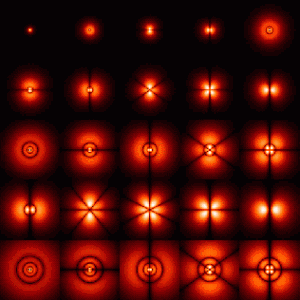 This post is the first of a new series here at Southern Fried Science called “State of the Field”. The series is meant to introduce key ideas, methods, and theories to support later research posts and to spread these concepts across disciplines. For the first month, I’ll be covering what’s known as “big T” theory to my lab group – that is, grand social theory about how the world works and also the theory that guides research question and method development. Please discuss!
This post is the first of a new series here at Southern Fried Science called “State of the Field”. The series is meant to introduce key ideas, methods, and theories to support later research posts and to spread these concepts across disciplines. For the first month, I’ll be covering what’s known as “big T” theory to my lab group – that is, grand social theory about how the world works and also the theory that guides research question and method development. Please discuss!

Somewhere in the introduction of most social science papers is a short statement about the author’s philosophy. Scholars in physics have long recognized that you cannot observe something without perturbing the something. In a research world where that something is a person, the subject can tell you how much a researcher is perturbing the observed system. This realization then begs the question – since we can’t observe a pristine system, is there a single reality out there to describe? Or will each researcher have a slightly different, though correct, description of reality based on their interactions with that reality? Or, taking the idea farther, is there no reality at all but instead a world completely constructed by those who describe it? These philosophies are called positivist, critical realist, and social constructionist, respectively.
Depending on the philosophy chosen, there are lots of things at stake such as objective methodology, legitimacy of certain types of knowledge, and the authority of science. Stay tuned for further discussion of these – first let’s get into more detail about the philosophies themselves.
Positivism
Arguably the most commonly practiced philosophy of scientists through the ages, positivism offers the world objective science and an earth that can be measured and, if necessary, fixed. The term and philosophy actually pre-date the field of philosophy of science, which critics of the position eventually created.

At its heart, the term describes a position that the goal of knowledge creation is to describe the phenomena of the world through careful observation and measurement. The more careful and exact, the better the description. More “soft”, generally qualitative information such as emotions, thoughts, negotiations, etc, is not needed. This careful observation and measurement has been codified in the scientific method by August Comte, sometimes credited as the founding father of positivism.
Two immediate problems arose with positivism: lack of recognition of observer bias and structural limitations as well as impossibilities within the social sciences for experimentation. For the former problems, scientific philosophers have been trying to devise solutions for centuries. For the latter, there is no ethical way for social scientists (that includes psychology, human geographers, anthropologists, and others) to experiment on their subjects except in very limited circumstances (usually in the undergraduate classes of the researchers). As a result, positivism has fallen out of favor of most social scientists. It’s worth mentioning that the philosophical split has created much controversy of late over whether anthropology is a science.
Critical Realism

Postpositivist thought emerged in response to the problems with positivist methods and has been wholeheartedly adopted by many physicists and social scientists who reject the notion that the world can be accurately observed and measured by a special person known as a scientist. The first step along the long and growing path of research philosophies is critical realism.
Critical realism, credited largely to Roy Bhaskar, seeks to combine knowledge from many sources and perspectives to ultimately describe the way the world works. No one researcher can accurately observe and measure the world without bringing his or her own biases. The perspective has been particularly useful in understanding the linkages between people and nature. The International Association for Critical Realism describes the need for their philosophy as a crisis in order to solve problems previously unattended to by positivist approaches.
Social Constructivism
There are many shades of gray between positivism and social constructionism but to fully subscribe to contructivism is to reject any notion of reality at all. The philosophy is credited to Lev Vygotsky. Knowledge is seen as a human product, meaning and importance created through human relations. Likewise, reality does not exist to be described but is instead created by members of society through their interactions with nature and the decisions they make.
 Social constructivism has huge implications for learning and stewardship of the earth since through learning, society produces nature. Educational programs designed around the philosophy are generally successful and produce inquisitive students able to participate in discussion rather than accepting reality as given.
Social constructivism has huge implications for learning and stewardship of the earth since through learning, society produces nature. Educational programs designed around the philosophy are generally successful and produce inquisitive students able to participate in discussion rather than accepting reality as given.
Philosophy of Science
The philosophies described here are a common point of discussion in social science education and are likely to enter the realm of other disciplines soon. Ecology, for example, is also a field that struggles to put together experiments to test its big theories, and one cannot manipulate the nature that supports life on earth. Plus, the postpositivist philosophies make space at the table for more people to collaborate – as the old adage goes, two heads are better than one.